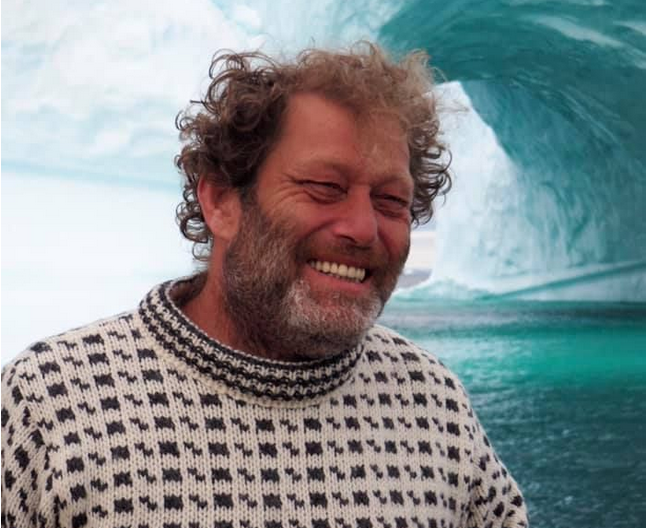
From Ukraine peace plans to Kazakh uranium—all that and more in our new nuclear digest
Our November Nuclear Digest by Bellona’s Environmental Transparency Center is out now. Here’s a quick taste of just three nuclear issues arising in U...
News

Publish date: October 14, 2021
Written by: Bellona
News
The European Union will seek a ban on tapping new oil, coal and gas deposits in the Arctic to protect a region severely affected by climate change, according to a proposal for the bloc’s new Arctic strategy published on Wednesday in a move Bellona wholeheartedly cheers.
The EU, which has three member states with Arctic territory, said there was a “geopolitical necessity” for it to be involved in the region, as global heating opens up competition for resources and the prospect of new shipping lanes.
Bellona – which for two decades has campaigned for such a move though its offices in Brussels and Oslo – said the proposal would put the Norway, Europe’s second biggest oil exporter, on notice.
“This is an extremely important move from the EU,” says Bellona founder Frederic Hauge. “We are already seeing how demand for Norwegian oil and gas is beginning to evaporate.”
In a policy paper published on Wednesday, the European Commission promised to aim for “a multilateral legal obligation not to allow any further hydrocarbon reserve development in the Arctic or contiguous regions” – which would include a pact not to buy any fossil fuels that are developed in the Arctic as well.
The proposal could mean the bloc will join the US and Canada, which have both suspended their own plans for hydrocarbon development in the Arctic region, lending further momentum to the cause. This year, President Joe Biden suspended drilling licenses in the Arctic National Wildlife Refuge. Canada in 2016 issued a five-year moratorium on Arctic drilling that it will likely renew.
The EU is a net importer of Arctic oil and gas and estimates it is responsible for 36% of the Arctic’s black carbon deposits, which accelerate global heating by darkening icebergs and land that would otherwise reflect back the sun’s rays.
Ringing the bell on that issue has been of special importance to Bellona. Research from Bellona’s St Petersburg office was instrumental to a 2011 European Parliament ban on the kinds of heavy fuel oils (HFOs) that are responsible for blackening Arctic ice. Our Brussels office even prompted the EU to refuse to harbor vessels running on HFO – an especially significant move given that 70 percent of ships running the Northeast passage were powered, at the time, on such fuels.
Bellona followed that up by supporting the European Commission’s efforts to tighten safety in the offshore drilling sector in the wake of the 2010’s Deepwater Horizon disaster in the Gulf of Mexico. The EU offshore safety directive, reached in 2013, established liability for oil drillers in the event of spills and other accidents, and required operators to submit extensive evaluation of hazards face by their installations in order for them to be approved.
In addition to its ongoing campaign against HFOs, Bellona’s Brussels office has also emphasized the importance of developing alternative propusion for Arctic shipping, publishing in 2017 a magazine-length roadmap on how to achieve an electric and hybrid maritime standard.
Later that year, Bellona co-founded the Clean Arctic Alliance, which united other NGOs in the effort to maintain the call for the EU to ban HFOs. That same year, the Norwegian Shipowners’ Association stated its support for the ban.
To drum up support for the ban, the Alliance joined forces with Hurtigruten, Norway’s largest passenger shipping lines, and penned the Arctic Commitment – a document that encourages both shippers and individuals to get on board with an Arctic HFO ban.
The Arctic Commitment has over one hundred signatories, including representatives of the shipbuilding industry, ports, politicians, and corporations – like Nike and the famed Swedish furniture company Ikea.
In the meantime, Bellona, through the coordinated effort of its offices in Brussels, Oslo, St Petersburg and Murmansk, continues to maintain a focus on continued shipping and hydrocarbon recovery efforts in the Arctic.
Bellona’s Hauge said Wednesday that the EU-proposed ban can and should cast uncertainty on the Norwegian government’s oil and gas projects in the Barents Sea.
“We trust the EU more than any Norwegian government in this matter,” said Hauge. “The proposal puts the current government declaration in a stark light, as the European Commission seems to go much further than what the new government is willing to do. The Arctic is among the very first places we must stop looking for oil and gas.”

Our November Nuclear Digest by Bellona’s Environmental Transparency Center is out now. Here’s a quick taste of just three nuclear issues arising in U...

For three years now, Bellona has continued its work in exile from Vilnius, sustaining and expanding its analysis despite war, repression, and the collapse of international cooperation with Russia in the environmental and nuclear fields

The Board of the Bellona Foundation has appointed former Minister of Climate and the Environment Sveinung Rotevatn as Managing Director of Bellona No...

Økokrim, Norway’s authority for investigating and prosecuting economic and environmental crime, has imposed a record fine on Equinor following a comp...